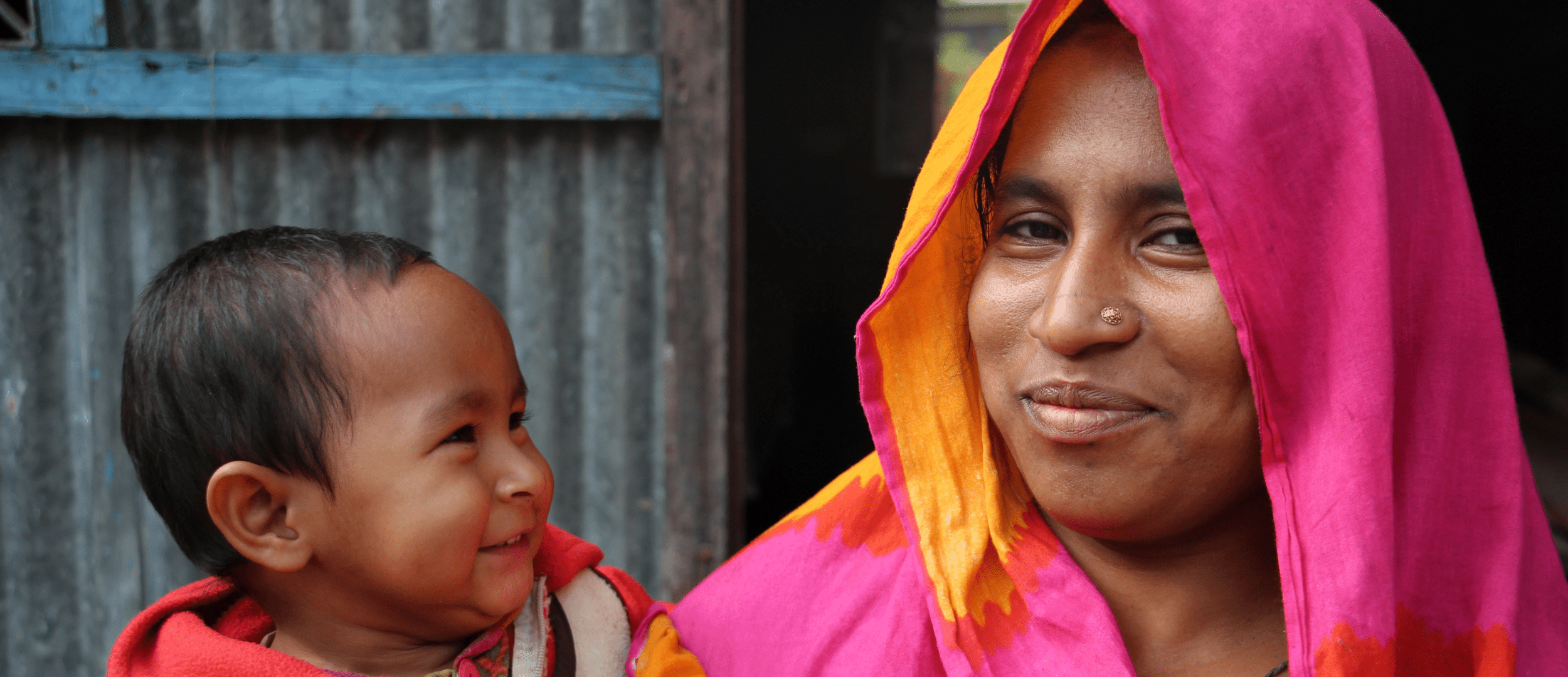
Mitigating the impact of climate change on women and children
Imagine a place where sea level rises every day and every drop of fresh water is like gold dust. In southern Bangladesh, on the border between land and ocean, thousands of families are facing the devastating consequences of climate change. As part of a consortium of 9 Swiss NGOs* working in Bangladesh, and with the financial support of the Swiss Cooperation Agency in the country, we are working with the Bangladeshi NGO Eco-Social Development (ESDO) to reduce the health risks faced by the population on a daily basis.
* CBM Global Disability Inclusion, Enfants du Monde, Global Alliance for Improved Nutrition (GAIN), HEKS/EPER, Helvetas Bangladesh, Solidar Suisse, Swiss Red Cross, Swisscontact, Terre des hommes
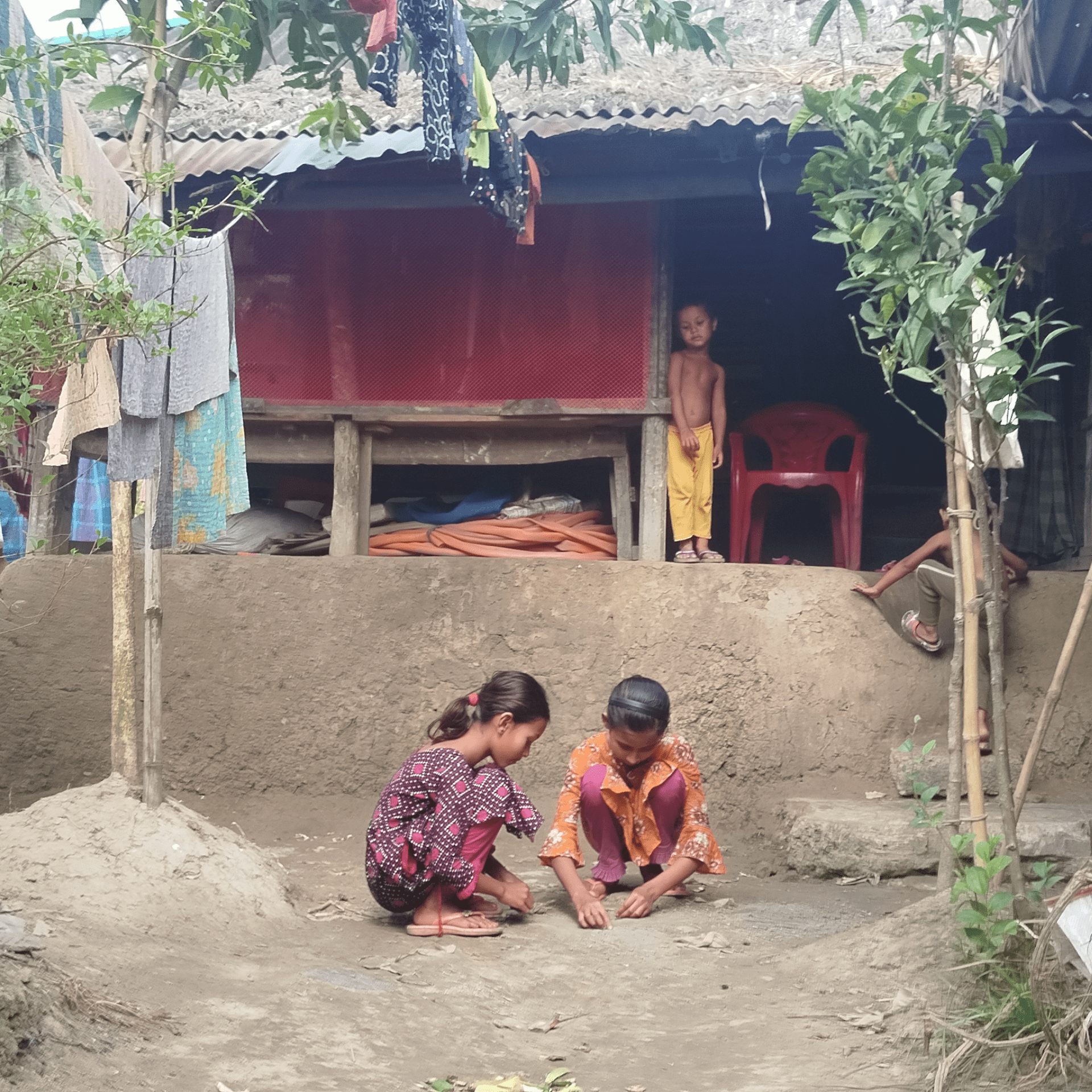
Amima, her husband Rahim and their 3 children live in the Assasuni sub-district in southern Bangladesh. Their home is made of sheet metal and bamboo, which are practical and inexpensive materials, as they have had to rebuild their shelter several times after it has been submerged in water.
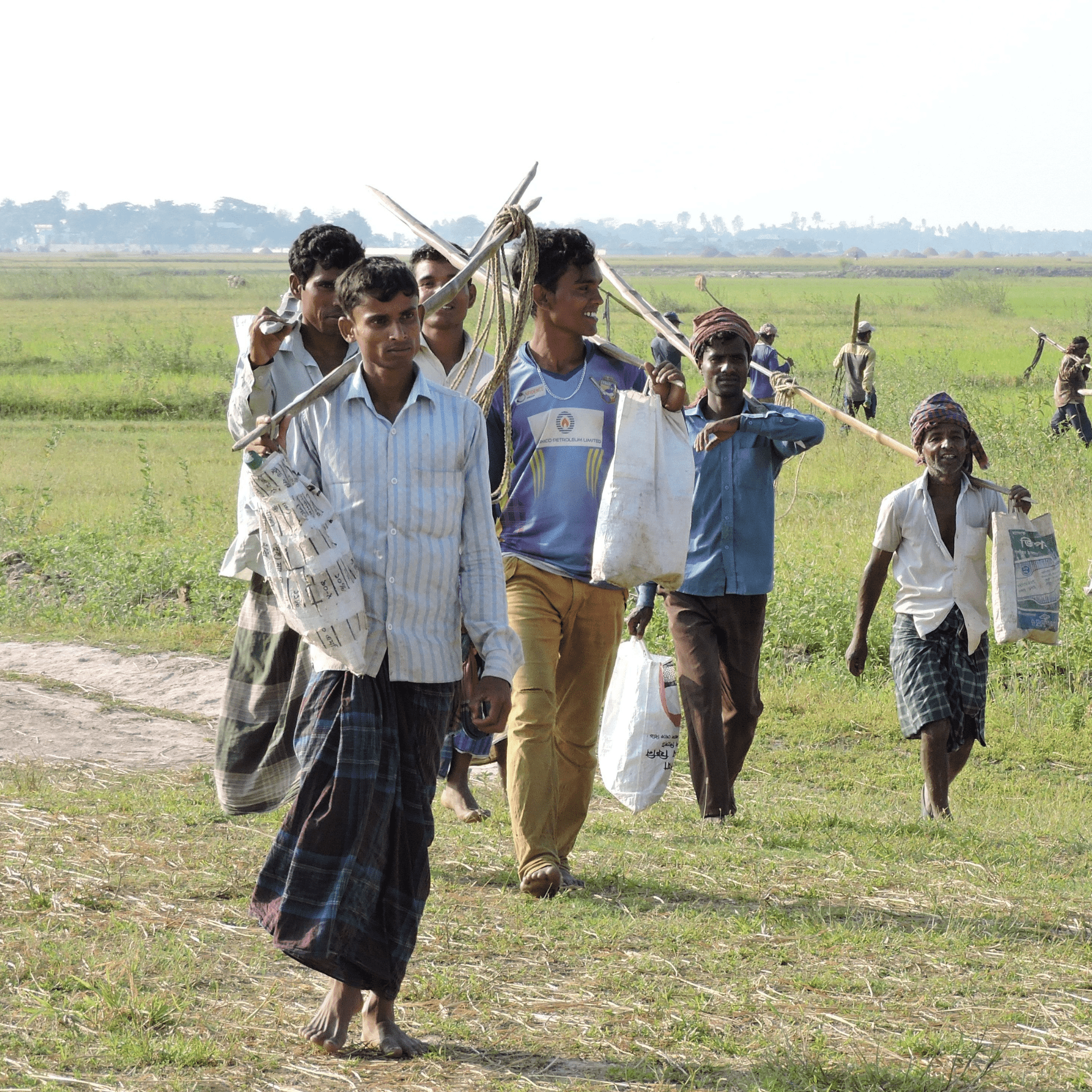
In the past, the family’s main source of income was farming, particularly rice paddies. But with the rising water and salt water intrusion, the crops were wiped out. Fishing has also become increasingly difficult because of river pollution, so Amima’s husband Rahim has had to move to the city to earn a living. Every week, he offers his services as a construction worker. Amima, who has stayed in the village, struggles to provide for her children on a daily income of 250 taka (around €2), which is barely enough to feed them.
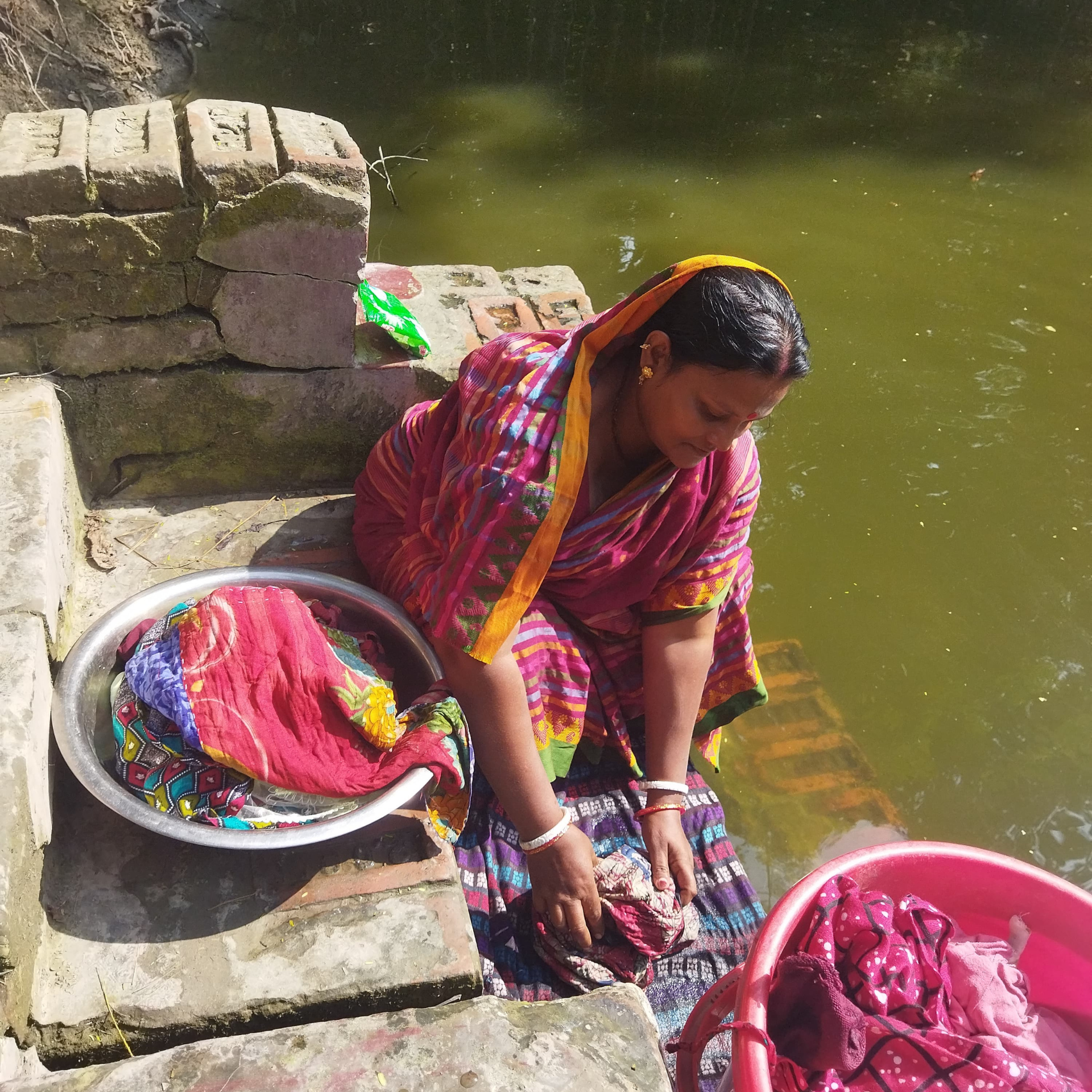
Salinity: an ever-present threat
Amima walks long distances to the well every day to fetch drinking water. More and more often, seawater is flowing back into the freshwater reservoirs. Sea water is unfit for drinking, unusable for irrigating crops or even for daily life tasks such as washing and cooking.
Due to their poverty, Amima and her husband cannot afford to desalinate the water or buy drinking water. To get a little fresh water, Amina collects rainwater or water from rivers and lakes, often in unhygienic conditions. Most of the time, the 5 members of the family are forced to drink contaminated water, and have only salt water to prepare meals, clean the house and wash clothes.
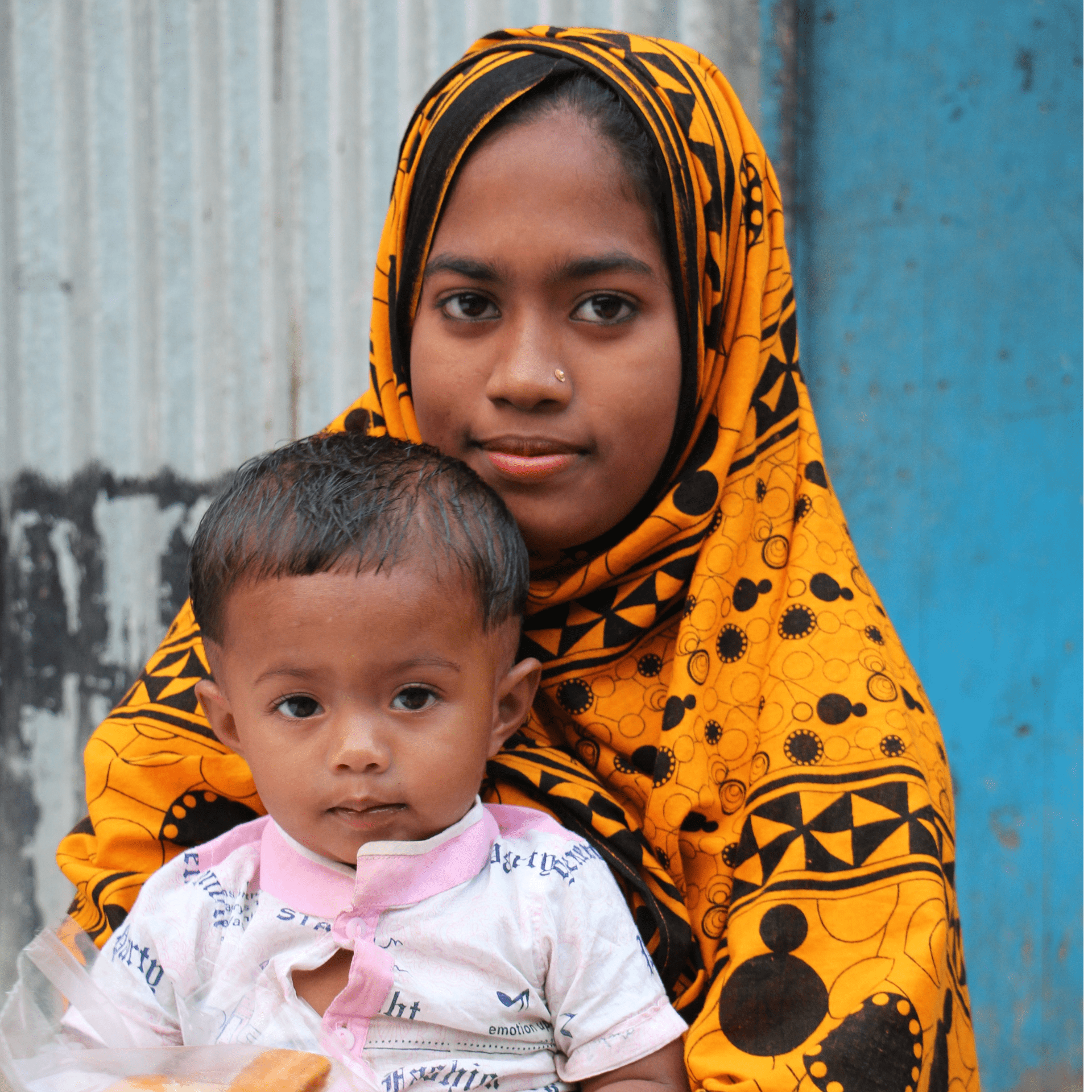
Serious health consequences
When she is lucky enough to find fresh water, Amima, like all of her neighbours, sacrifices to leave for her husband and children. The local doctor notes that women are particularly affected by illnesses linked to excess salt, such as high blood pressure, kidney problems, skin problems and hair loss. In addition, the salt water they use to wash their menstrual pads causes skin burns and infections. Children frequently suffer from diarrhea as a result of contaminated water.
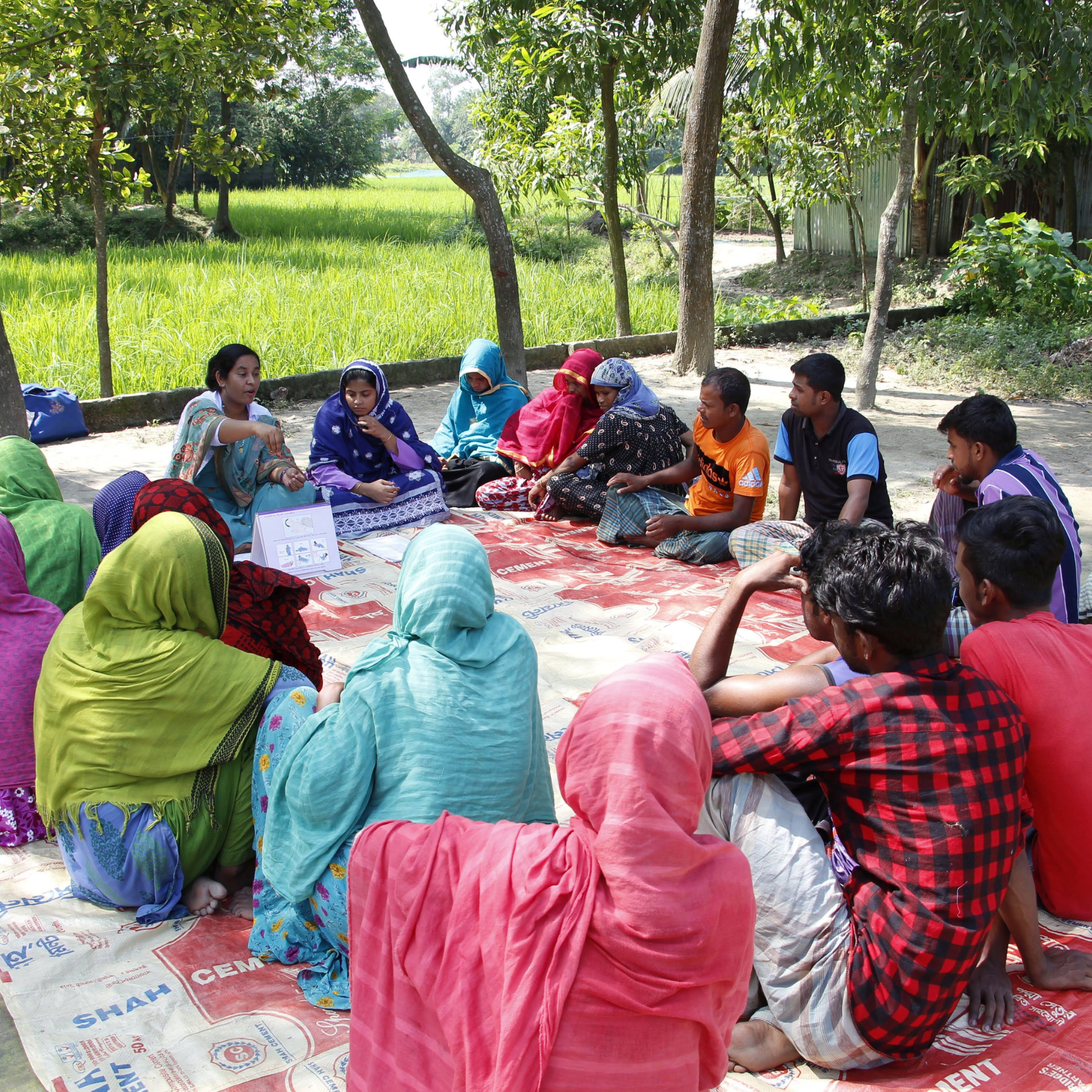
Strengthening community resilience
Together with our local partner, we are training health centre staff to identify illnesses linked to climate change and to take preventive action. For example, since visiting the health centre during her last pregnancy, Amima now knows better how to protect her health and that of her family, for example in the event of dehydration or heatstroke. She also knows the symptoms of dengue fever, and takes precautions to prevent mosquito bites and their breeding. Finally, Amima tries to find fresh water to wash herself and her clothes in order to avoid skin problems during her periods.
We help vulnerable families access this essential information, which is often ignored. In this way, we are transmitting knowledge on simple but crucial practices to improve their health and their ability to face up to the challenges of climate change.

My donation makes a difference
I help 350 pregnant women and their husbands in Bangladesh participate in maternal health education session to prepare for childbirth.
I provide ongoing training in maternal and child health to three health workers in Bangladesh.